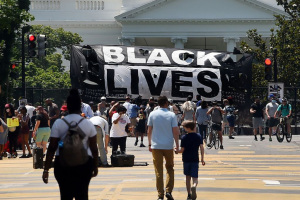Ohio Judge to Issue Ruling on Recognizing Gay Marriages
Ohio State's attorneys are prepared to seek a stay order from a federal judge who is scheduled Monday to strike down as unconstitutional the state's voter-approved ban on recognizing the marriages of same-sex couples from other states.
U.S. District Judge Timothy Black announced April 4 his intention to "issue a written decision and order by April 14, striking down as unconstitutional under all circumstances Ohio's bans on recognizing legal same-sex marriages from other states."
The plaintiffs in the case are four same-sex couples who got married in other states and are seeking to be recognized as parents on their children's birth certificates.
Ohio's attorneys have said they are prepared to ask the judge to issue a stay of his expected ruling so that it doesn't go into effect immediately, although Black might do so on his own.
"My job as attorney general is to defend statutes and defend Ohio's constitutional provisions," Ohio Attorney General Mike DeWine tells The Associated Press. "This was voted on by voters so my job is to do that."
DeWine says this debate is taking place in all states. "I think it's pretty obvious that all these issues are going to be resolved by the 6th Circuit and some cases are going to get to the Supreme Court. They're going to have a decision in the United States Supreme Court and we're all going to have to accept that."
Same-sex marriage is recognized in 17 states and Washington, D.C.
Federal judges in some states have struck down state amendments and laws banning gay marriage as unconstitutional ever since the U.S. Supreme Court last June squashed a key part of the federal Defense of Marriage Act. They have revoked bans in Michigan, Utah, Texas, Oklahoma and Virginia, and ordered Kentucky and Tennessee to recognize out-of-state gay marriages. However, stays have been issued pending appeals.
"I intend to issue a declaration that Ohio's recognition bans, that have been relied upon to deny legal recognition to same-sex couples validly entered in other states where legal, violates the rights secured by the 14th Amendment to the U.S. Constitution," Black said in his statement, adding that same-sex couples are "denied their fundamental right to marry a person of their choosing and the right to remain married."
Attorneys for Ohio had argued that the state has the jurisdiction to define marriage. State's voters passed a constitutional amendment in 2004 recognizing marriage as the union between one man and one woman.
The National Organization for Marriage was prompt in criticizing the judge's intention earlier this month. "This is an affront to the rule of law and to the people of Ohio who voted overwhelmingly to define marriage solely as the union of one man and one woman," Brian Brown, the group's president, said in a statement.



























